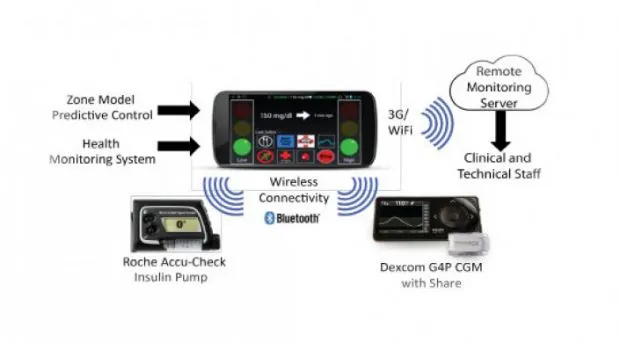A set of researchers from Harvard University (United States) has developed an artificial pancreas that aims to improve the quality of life of patients with type 1 diabetes.
The platform has the advantage that it can be controlled through the mobile phone and also learns from user's habits, which allows user glucose levels to be maintained within a healthy range.
It is not the first time that we know an artificial pancreas: in 2015 we learned of one of the first prototypes and last year another model was presented that is expected to reach the market in 2018.
These devices are designed to imitate the glucose regulatory function of a healthy person, for which they supervise blood glucose levels automatically and manage insulin dose when necessary.
The new artificial pancreas that these scientists have created is a closed cycle system composed of an insulin pump and a continuous glucose monitor placed under the patient's skin.A predictive control algorithm in the smartphone connects with the pump to indicate the amount of insulin that has to be administered, based on a series of variables such as meals, physical activity, sleep, stress or metabolism.The system is learning from the user and over time is able to anticipate any important change in blood glucose.
To test the operation of the device, the team carried out a clinical trial with a duration of twelve weeks in which 30 patients with type 1 diabetes participated. The volunteers followed their usual daily routines while the artificial pancreas controlled their glucose levelsContinuous, adjusting and adapting insulin administration automatically.
The results revealed the positive effects on two important indicators: the decrease in A1C (HBA1C) hemoglobin and the reduction of time spent to hypoglycemia.The team has to continue testing, but for now this adaptive artificial pancreas has proven to function properly to improve the quality of life of diabetics.




